TEMPERATURES of 38°C do nothing to stop us from exploring.
It is both surprising and comforting to be greeted by familiar brands in the shopping mall.
Yet what distinguishes Accra from almost all South African cities are the artistically designed buildings that are unlike anything in Johannesburg, not even in Newtown.
Where there is no grass or concrete cover, the earth has a very dark hue, which — along with the corroding effect of the high humidity on infrastructure — gives the city an old rustic feel. But then it could have been my reflexes confirming I‘m not home.
On the other hand, fancy skew buildings with unusual designs keep us admiring the uniqueness of the Ghanaian capital.
Just like SA is replete with streets and other infrastructure named after Nelson Mandela, Accra has a whole memorial park and museum, the Kwame Nkrumah Mausoleum, dedicated to the late president whose body is kept here along with that of his wife Fathia Nkrumah.
Nkrumah led the then Gold Coast’s drive for independence from Britain and presided over the new nation of Ghana.
Our tour guide Elvis said during the attendant violence leading to Nkrumah’s subsequent overthrow and exile in February 1966, the statue of the nation’s first president was vandalised with the head being cut off from the body. The head has since been recovered and is displayed next to the statue at the memorial park.
The reverence and quiet dignity given to the memorial park by locals is admirable. It is a go-to place for newlyweds who visit in large numbers to take photos.
Displayed in the museum are Mr Nkrumah’s possessions, including his clothes, furniture and the car he drove — a blue vintage that would attract a sizeable sum in the present day. It’s safely locked up in a glass garage at the park not far from the tombstones.
Not far from the park is a market not unlike the one at Johannesburg’s Bruma Lake. Elvis warned us to be cautious, saying the vendors are tough negotiators who would think nothing about trebling the price at a sight of a tourist. "Negotiate the prices to more than three quarters less or you will be ripped off," he said.
Shopping in this market turns out to be such as an exhausting experience, not least because the vendors are very aggressive and impossible to shake off.
Earlier we had checked in at the five-star Labadi Beach hotel. There was no better experience than moving from 38° heat into a calming bath.
The scrumptious meal offerings, with choices from buffet to menu, endorse the feeling of being at home far away from home.
The hotel was newly renovated, with a new block having been added, among other upgrades. "We’ve been very careful during our refurbishments, to make sure we stick to Ghanaian tradition, culture and customs" said Adrian Landry, the General Manager of Labadi Beach Hotel.
The hotel is ideal for business and corporate travellers but caters for leisure travellers too. It is fully fitted to cater for all business needs, from free wifi to office space with small to big boardrooms. Privacy is affirmed such that one guest has been staying in one of the presidential suites for over five years. According to a hotel official, the guest asked not to be bothered and they respect his wishes. The hotel still does not know when he is planning on leaving.
Access to the beach from Labadi Hotel is easy. The beach — although having the tell-tale signs of neglect — has a convenience store where purchases can be billed to one’s hotel room. Among the attractions on the beach were offers of horse rides at a negotiated price.
Outside of the hotel and away from the beach, an outstanding feature about the roads in Accra are the large road circles which work to control traffic. At a busy intersection are statues of Mr Nkrumah, Obestsebi-Lamptey, Dr Ako-Adjei, Edward Akuffo Addo, Dr Danquah and William Ofori Atta, who are labeled as the founding Fathers of Ghana.
Accra is an enticing and culturally rich city but it also has its bad side. The unfriendliness of the street vendors left us fearing for our lives when we attempted to take photos of them and were told to back off and stop in their language. The anger on their faces and their actions said it all. We felt unwanted and unwelcome in this part of Accra.
Not all parts of Ghana were unfriendly, however. We saw an aeroplane-themed restaurant set up in an actual plane, that was nice to behold. From the green livery, it reminded me of a kulula.com airplane back home, if only we had a chance to see the inside.
Our weak rand made shopping in Ghana a bit difficult and expensive. We had to multiply each rand by three to get one Ghanaian cede. There are a lot of business opportunities available in Ghana and with the newly found business relations brought by SAA to Ghana it is evident that in the near future, Ghana may become a second home to many South Africans. The staff at the airport is scary, not sure if they do it on purpose, but it was worrying. It’s a bad way to end a holiday.
• Malinga was a guest of SAA and Labadi Beach Hotel
The National Theatre in the Victoriaborg district of Accra, Ghana. Picture: ISTOCK
TEMPERATURES of 38°C do nothing to stop us from exploring.
It is both surprising and comforting to be greeted by familiar brands in the shopping mall.
Yet what distinguishes Accra from almost all South African cities are the artistically designed buildings that are unlike anything in Johannesburg, not even in Newtown.
Where there is no grass or concrete cover, the earth has a very dark hue, which — along with the corroding effect of the high humidity on infrastructure — gives the city an old rustic feel. But then it could have been my reflexes confirming I‘m not home.
On the other hand, fancy skew buildings with unusual designs keep us admiring the uniqueness of the Ghanaian capital.
Just like SA is replete with streets and other infrastructure named after Nelson Mandela, Accra has a whole memorial park and museum, the Kwame Nkrumah Mausoleum, dedicated to the late president whose body is kept here along with that of his wife Fathia Nkrumah.
Nkrumah led the then Gold Coast’s drive for independence from Britain and presided over the new nation of Ghana.
Our tour guide Elvis said during the attendant violence leading to Nkrumah’s subsequent overthrow and exile in February 1966, the statue of the nation’s first president was vandalised with the head being cut off from the body. The head has since been recovered and is displayed next to the statue at the memorial park.
The reverence and quiet dignity given to the memorial park by locals is admirable. It is a go-to place for newlyweds who visit in large numbers to take photos.
Displayed in the museum are Mr Nkrumah’s possessions, including his clothes, furniture and the car he drove — a blue vintage that would attract a sizeable sum in the present day. It’s safely locked up in a glass garage at the park not far from the tombstones.
Not far from the park is a market not unlike the one at Johannesburg’s Bruma Lake. Elvis warned us to be cautious, saying the vendors are tough negotiators who would think nothing about trebling the price at a sight of a tourist. "Negotiate the prices to more than three quarters less or you will be ripped off," he said.
Shopping in this market turns out to be such as an exhausting experience, not least because the vendors are very aggressive and impossible to shake off.
Earlier we had checked in at the five-star Labadi Beach hotel. There was no better experience than moving from 38° heat into a calming bath.
The scrumptious meal offerings, with choices from buffet to menu, endorse the feeling of being at home far away from home.
The hotel was newly renovated, with a new block having been added, among other upgrades. "We’ve been very careful during our refurbishments, to make sure we stick to Ghanaian tradition, culture and customs" said Adrian Landry, the General Manager of Labadi Beach Hotel.
The hotel is ideal for business and corporate travellers but caters for leisure travellers too. It is fully fitted to cater for all business needs, from free wifi to office space with small to big boardrooms. Privacy is affirmed such that one guest has been staying in one of the presidential suites for over five years. According to a hotel official, the guest asked not to be bothered and they respect his wishes. The hotel still does not know when he is planning on leaving.
Access to the beach from Labadi Hotel is easy. The beach — although having the tell-tale signs of neglect — has a convenience store where purchases can be billed to one’s hotel room. Among the attractions on the beach were offers of horse rides at a negotiated price.
Outside of the hotel and away from the beach, an outstanding feature about the roads in Accra are the large road circles which work to control traffic. At a busy intersection are statues of Mr Nkrumah, Obestsebi-Lamptey, Dr Ako-Adjei, Edward Akuffo Addo, Dr Danquah and William Ofori Atta, who are labeled as the founding Fathers of Ghana.
Accra is an enticing and culturally rich city but it also has its bad side. The unfriendliness of the street vendors left us fearing for our lives when we attempted to take photos of them and were told to back off and stop in their language. The anger on their faces and their actions said it all. We felt unwanted and unwelcome in this part of Accra.
Not all parts of Ghana were unfriendly, however. We saw an aeroplane-themed restaurant set up in an actual plane, that was nice to behold. From the green livery, it reminded me of a kulula.com airplane back home, if only we had a chance to see the inside.
Our weak rand made shopping in Ghana a bit difficult and expensive. We had to multiply each rand by three to get one Ghanaian cede. There are a lot of business opportunities available in Ghana and with the newly found business relations brought by SAA to Ghana it is evident that in the near future, Ghana may become a second home to many South Africans. The staff at the airport is scary, not sure if they do it on purpose, but it was worrying. It’s a bad way to end a holiday.
• Malinga was a guest of SAA and Labadi Beach Hotel


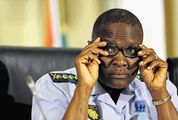
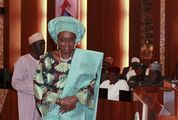
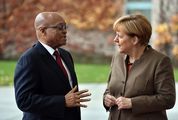



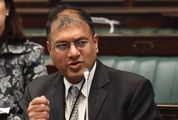
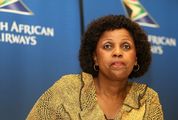

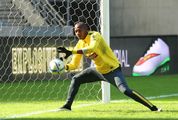








Change: 0.05%
Change: 0.14%
Change: -0.41%
Change: 0.50%
Change: -1.46%
Data supplied by Profile Data
Change: 0.00%
Change: 0.00%
Change: 0.05%
Change: 0.00%
Change: 0.00%
Data supplied by Profile Data
Change: -0.05%
Change: 0.02%
Change: 0.09%
Change: -0.09%
Change: 1.01%
Data supplied by Profile Data
Change: 0.00%
Change: 0.00%
Change: 0.00%
Change: 0.00%
Change: 0.00%
Data supplied by Profile Data